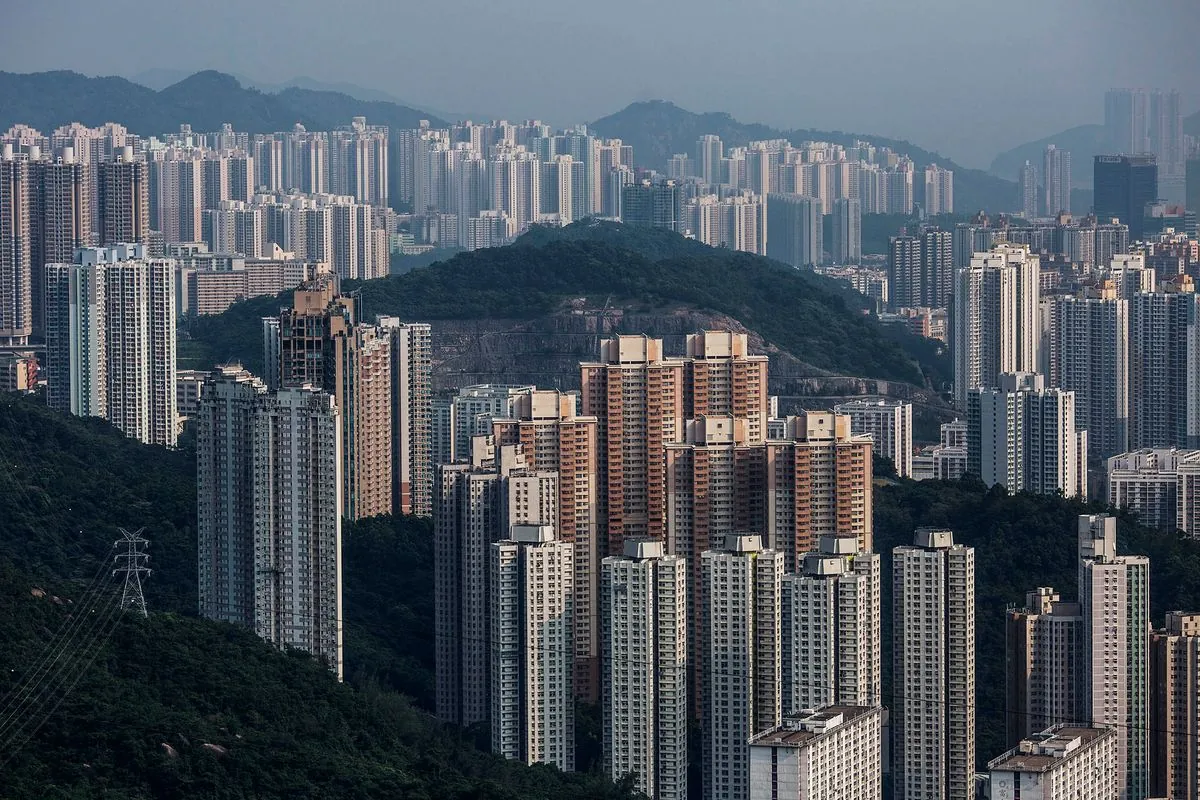In a significant shift for Hong Kong's property market, developers are increasingly turning to the rental sector to navigate a prolonged downturn. This strategic pivot comes as the city experiences a surge in demand from mainland Chinese professionals and students, reshaping the demographic landscape of the former British colony.
The property market in Hong Kong, known for its sky-high real estate prices, is witnessing a divergence between rental rates and home prices. As of July 2024, private home rents have climbed to their highest level in nearly five years, while property values have plummeted by 22% during the same period. This trend reflects the changing dynamics of the city's housing market and the broader economic uncertainties.
Henderson Land, a major developer in Hong Kong, recently announced its decision to offer part of its "Baker Circle Dover" project in Kowloon for rent instead of sale. The company reported leasing over 20 units within a week, with monthly rents ranging from HK$14,000 for a studio to HK$19,000 for a one-bedroom apartment. Similarly, Chevalier International has dedicated all 58 flats in a new building for rental purposes.
These moves are in response to the influx of mainland Chinese arrivals following the introduction of various talent admission schemes in 2022. John Lee, Hong Kong's chief executive, reported that 210,000 applications have been approved under these programs, with 140,000 individuals already residing in the city. Market experts estimate that the majority of these newcomers are from mainland China.
The growing demand for student housing has also caught the attention of property investors. With the quota for non-local students in Hong Kong's eight universities set to double to 40% of admissions from the 2024 academic year, there's been a surge in interest in this sector. In June 2024, the Hong Kong Metropolitan University made a significant investment by purchasing a 255-room hotel for HK$1 billion to use as a student dormitory.
Raymond Lee, CEO of Savills Greater China, noted the increasing demand for student housing, attributing it to the expanded foreign student quota and the difficulty mainland Chinese students face in obtaining mortgage loans for apartments.
While the rental market is currently thriving, experts caution that an oversupply of student housing could potentially lead to a drop in rents in the long term. However, for now, students like Julia Zhong from Shenyang are willing to pay higher rents to secure accommodation in the competitive market.
This shift in the property market reflects broader changes in Hong Kong's socio-economic landscape. The city, which experienced an exodus of residents following anti-government protests in 2019 and the subsequent pandemic, is now seeing its population gap filled by mainland Chinese professionals and students.
"I'm glad I got the new lease in June, which is HK$500 more expensive per head than my previous flat. I heard the rents have got much more expensive in July and August."
As Hong Kong continues to evolve, its property market adapts to new realities, balancing the needs of long-term residents with those of newcomers attracted by the city's opportunities and its unique position as a global financial hub operating under the "One Country, Two Systems" principle with China.
